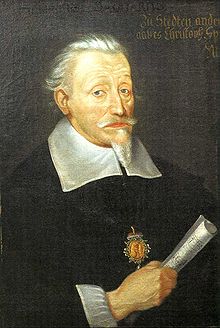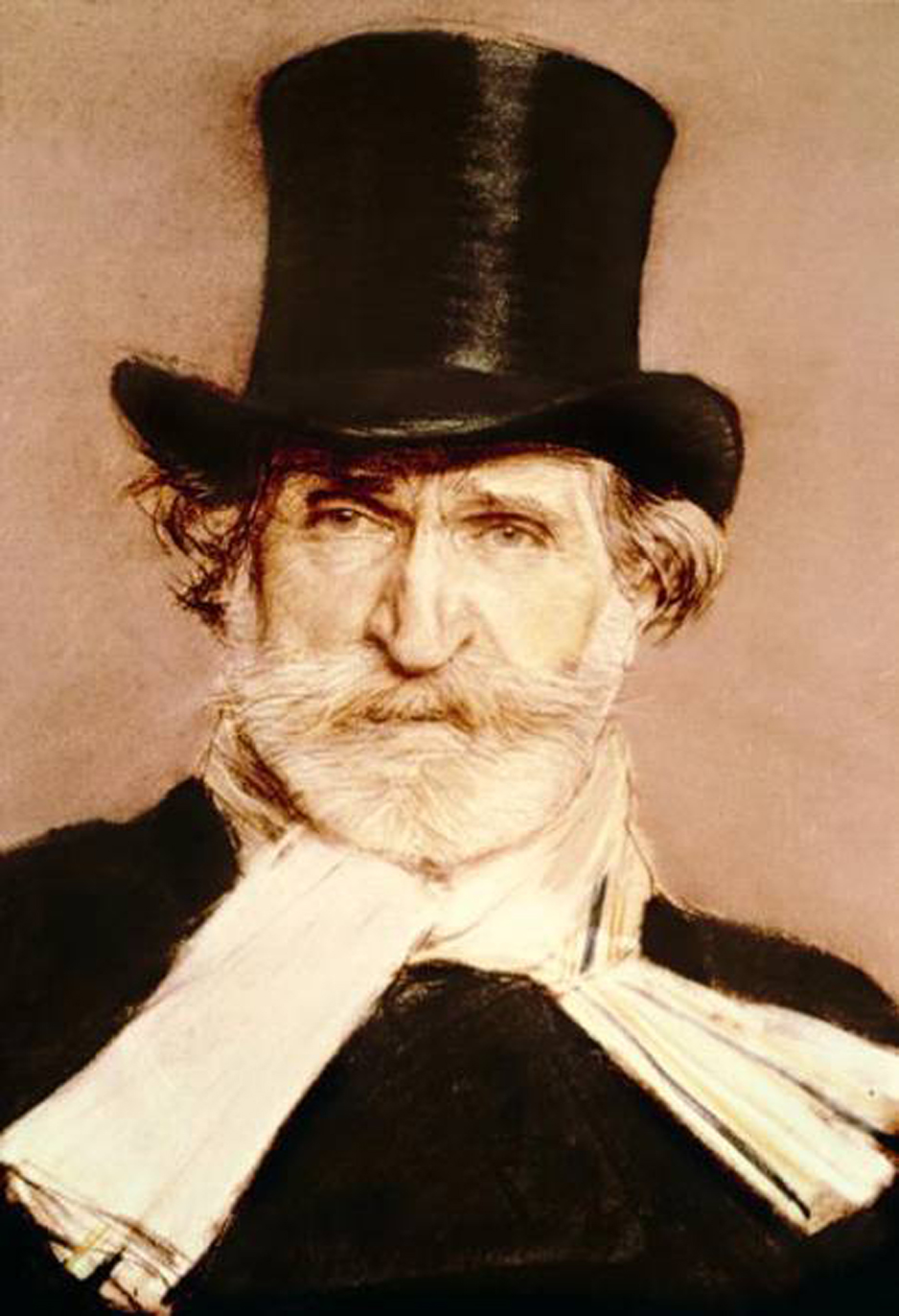This Week in Classical Music: October 5, 2020.An unusual week.Last week, unfortunately, we had two days of outages.This had to do with our hosting provider updating some software, but part of the problem was with us: we also need to keep up with evolving technology.For that we’ll need some help from our listeners.More on this tropic to come.
This coming week is quite bountiful: three composers, three pianists, one cellist (but what a cellist!) and a conductor.First, the composers - a German, an Italian, and a Frenchman: Heinrich Schütz, Giuseppe Verdiand Camille Saint-Saëns.We’ve celebrated all of them many times, Schütz, probably the most important German composer before Bach, here and here; Verdi – many times (take a look here and here).We were more circumspect about Saint-Saëns: a fine composer, quite conservative at that: he died in 1921, ten years after Mahler, when Stravinsky has already written many of the masterpieces of his Russian period, after the Viennese school forever changed the way we would listen to music – and he was writing things like thisOboe Sonata in D major, op. 166, from 1921, the year of his death.A charming piece, but one that wouldn’t be out of place half a century earlier.In this performance Guido Ghetti is the oboist and Amadeo Salvato is on the piano.
Speaking of the piano: three distinguished pianists were born this week, Edwin Fischer, Shura Cherkassky, and Evgeny Kissin.Edwin Fischer, a Swiss pianist, was born in 1886 but, fortunately, left a number of remarkable recording, especially those of Mozart and Bach.Shura Cherkassky was born in Odessa in 1909 and performed for almost 70 years: he started performing publicly in 1928, his last recording was made in 1995, the year of his death, when Cherkassky was 85.Shura (diminutive from Alexander) came to the US in 1923 and studied with Josef Hoffman.He moved to London after WWII.The music critic Harold Schonberg called Cherkassky “the last remaining exponent of the grand Romantic style.”Here’s a live recording of Cherkassky playing Rachmaninov’s Variations on a Theme of Corelli.It was made in 1986.As for Evgeny Kissin, who will turn 50 next year: we hope that both he and we are up and running and we’ll have a chance to dedicate a full entry to this extraordinary pianist.
Yo-Yo Ma is our cellist of the week.He was born on October 7th, 1955 in Paris to Chinese parents; his family moved to New York when Ma was seven.A child prodigy, he played several instruments from a very early age but eventually (by the age of seven!) settled on the cello.He studied with Leonard Rose at the Juilliard.When Ma was 15, Leonard Bernstein presented him on one of his TV programs.Since 1976 he’s been performing widely and is now consider one of the greatest cellists of his generation.He’s played with all major orchestras and distinguished instrumentalists, such as the violinists Pinchas Zukerman and Yehudi Menuhin and the pianist Emanuel Ax.Ma’s recorded repertoire is wide, and his recordings of Bach’s cello sonatas are especially highly valued.
And finally, our conductor of the week: Theodore Thomas, born on October 11th of 1835; he was the first music director of the Chicago Symphony Orchestra.Thomas was born in Essen, Germany but his family moved to the US when he was 10.He had a distinguished career as a conductor and came to Chicago after being promised a permanent orchestra.Under his direction, the Chicago Orchestra played its first concert on October 16th of 1891.In December of 1904 he opened Symphony Hall, designed by Daniel Burnham.Theodore Thomas died of pneumonia on January 4th, 1905 after conducting just two weeks of subscription concerts at the new hall.
Schütz, Verdi and more 2020
This Week in Classical Music: October 5, 2020. An unusual week. Last week, unfortunately, we had two days of outages. This had to do with our hosting provider updating some software, but part of the problem was with us: we also need to keep up with evolving technology. For that we’ll need some help from our listeners. More on this tropic to come.
This coming week is quite bountiful: three composers, three pianists, one cellist (but what a cellist!) and a conductor. First, the composers - a German, an Italian, and a Frenchman: Heinrich Schütz, Giuseppe Verdi and Camille Saint-Saëns. We’ve celebrated all of them many times, Schütz, probably the most important German composer before Bach, here and here; Verdi – many times (take a look here and here). We were more circumspect about Saint-Saëns: a fine composer, quite conservative at that: he died in 1921, ten years after Mahler, when Stravinsky has already written many of the masterpieces of his Russian period, after the Viennese school forever changed the way we would listen to music – and he was writing things like this Oboe Sonata in D major, op. 166, from 1921, the year of his death. A charming piece, but one that wouldn’t be out of place half a century earlier. In this performance Guido Ghetti is the oboist and Amadeo Salvato is on the piano.
cellist!) and a conductor. First, the composers - a German, an Italian, and a Frenchman: Heinrich Schütz, Giuseppe Verdi and Camille Saint-Saëns. We’ve celebrated all of them many times, Schütz, probably the most important German composer before Bach, here and here; Verdi – many times (take a look here and here). We were more circumspect about Saint-Saëns: a fine composer, quite conservative at that: he died in 1921, ten years after Mahler, when Stravinsky has already written many of the masterpieces of his Russian period, after the Viennese school forever changed the way we would listen to music – and he was writing things like this Oboe Sonata in D major, op. 166, from 1921, the year of his death. A charming piece, but one that wouldn’t be out of place half a century earlier. In this performance Guido Ghetti is the oboist and Amadeo Salvato is on the piano.
Speaking of the piano: three distinguished pianists were born this week, Edwin Fischer, Shura Cherkassky, and Evgeny Kissin. Edwin Fischer, a Swiss pianist, was born in 1886 but, fortunately, left a number of remarkable recording, especially those of Mozart and Bach. Shura Cherkassky was born in Odessa in 1909 and performed for almost 70 years: he started performing publicly in 1928, his last recording was made in 1995, the year of his death, when Cherkassky was 85. Shura (diminutive from Alexander) came to the US in 1923 and studied with Josef Hoffman. He moved to London after WWII. The music critic Harold Schonberg called Cherkassky “the last remaining exponent of the grand Romantic style.” Here’s a live recording of Cherkassky playing Rachmaninov’s Variations on a Theme of Corelli. It was made in 1986. As for Evgeny Kissin, who will turn 50 next year: we hope that both he and we are up and running and we’ll have a chance to dedicate a full entry to this extraordinary pianist.
week, Edwin Fischer, Shura Cherkassky, and Evgeny Kissin. Edwin Fischer, a Swiss pianist, was born in 1886 but, fortunately, left a number of remarkable recording, especially those of Mozart and Bach. Shura Cherkassky was born in Odessa in 1909 and performed for almost 70 years: he started performing publicly in 1928, his last recording was made in 1995, the year of his death, when Cherkassky was 85. Shura (diminutive from Alexander) came to the US in 1923 and studied with Josef Hoffman. He moved to London after WWII. The music critic Harold Schonberg called Cherkassky “the last remaining exponent of the grand Romantic style.” Here’s a live recording of Cherkassky playing Rachmaninov’s Variations on a Theme of Corelli. It was made in 1986. As for Evgeny Kissin, who will turn 50 next year: we hope that both he and we are up and running and we’ll have a chance to dedicate a full entry to this extraordinary pianist.
Yo-Yo Ma is our cellist of the week. He was born on October 7th, 1955 in Paris to Chinese parents; his family moved to New York when Ma was seven. A child prodigy, he played several instruments from a very early age but eventually (by the age of seven!) settled on the cello. He studied with Leonard Rose at the Juilliard. When Ma was 15, Leonard Bernstein presented him on one of his TV programs. Since 1976 he’s been performing widely and is now consider one of the greatest cellists of his generation. He’s played with all major orchestras and distinguished instrumentalists, such as the violinists Pinchas Zukerman and Yehudi Menuhin and the pianist Emanuel Ax. Ma’s recorded repertoire is wide, and his recordings of Bach’s cello sonatas are especially highly valued.
And finally, our conductor of the week: Theodore Thomas, born on October 11th of 1835; he was the first music director of the Chicago Symphony Orchestra. Thomas was born in Essen, Germany but his family moved to the US when he was 10. He had a distinguished career as a conductor and came to Chicago after being promised a permanent orchestra. Under his direction, the Chicago Orchestra played its first concert on October 16th of 1891. In December of 1904 he opened Symphony Hall, designed by Daniel Burnham. Theodore Thomas died of pneumonia on January 4th, 1905 after conducting just two weeks of subscription concerts at the new hall.